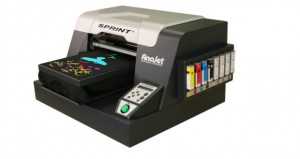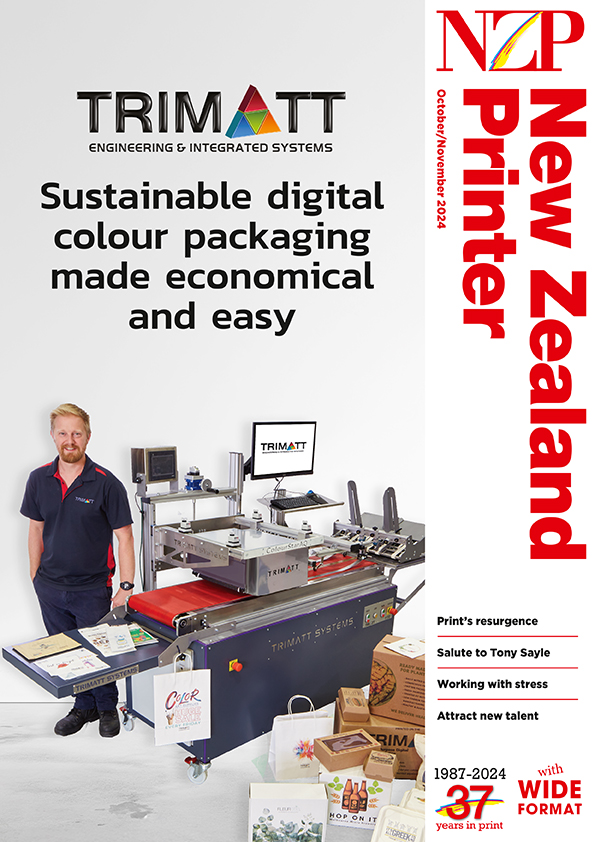Japanese digital giant Ricoh has reached an agreement to buy Californian direct to garment printer manufacturer Anajet.
This acquisition demonstrates Ricoh’s intention to make strategic investments in order to strengthen its industrial inkjet business. The company says it will enable its customers to move forward new ideas and drive imaginative thinking.

Among otheres, Ricoh now owns the Anajet Sprint entry level digital apparel printer
Junichi Matsuno, general manager for the inkjet business division at Ricoh, says, “Ricoh has a long history of successful, strategic acquisitions that have helped our customers and partners around the world find new, effective ways to better serve their end users.
“With the addition of AnaJet, our collective customers benefit from a larger support team, added innovation and access to a services-led portfolio of solutions to ultimately help them grow their business. AnaJet already possesses a proven reputation as a leader in DTG printing and as such, it is a great complement to Ricoh’s broad portfolio.”
AnaJet will continue to operate under its current name, management team and capabilities, which currently includes more than 50 employees and is headquartered in Costa Mesa, California. It will become a wholly owned subsidiary of Ricoh Printing Systems America.
Karl Tipre, chief executive of Anajet, says, “At AnaJet, we have led the industry in establishing the trend of direct to garment printing. Today we are very pleased to announce that this acquisition will provide our expanding customer base with the services of yet another global leader in Ricoh. We are extremely excited for what lies ahead for the Anajet brand and our customers.”
Founded in 2006, AnaJet became one of the first companies in the world to mass produce direct to garment printers. Ricoh describes Anajet as a global market leader in the direct to garment industry. The majority of AnaJet products available today leverage Ricoh’s inkjet printheads.
While Ricoh has focused on office and commercial print technologies, the company sees this acquisition as helping Ricoh further its position in the industrial inkjet market, a market where Ricoh claims it has global leadership in inkjet printhead development.


